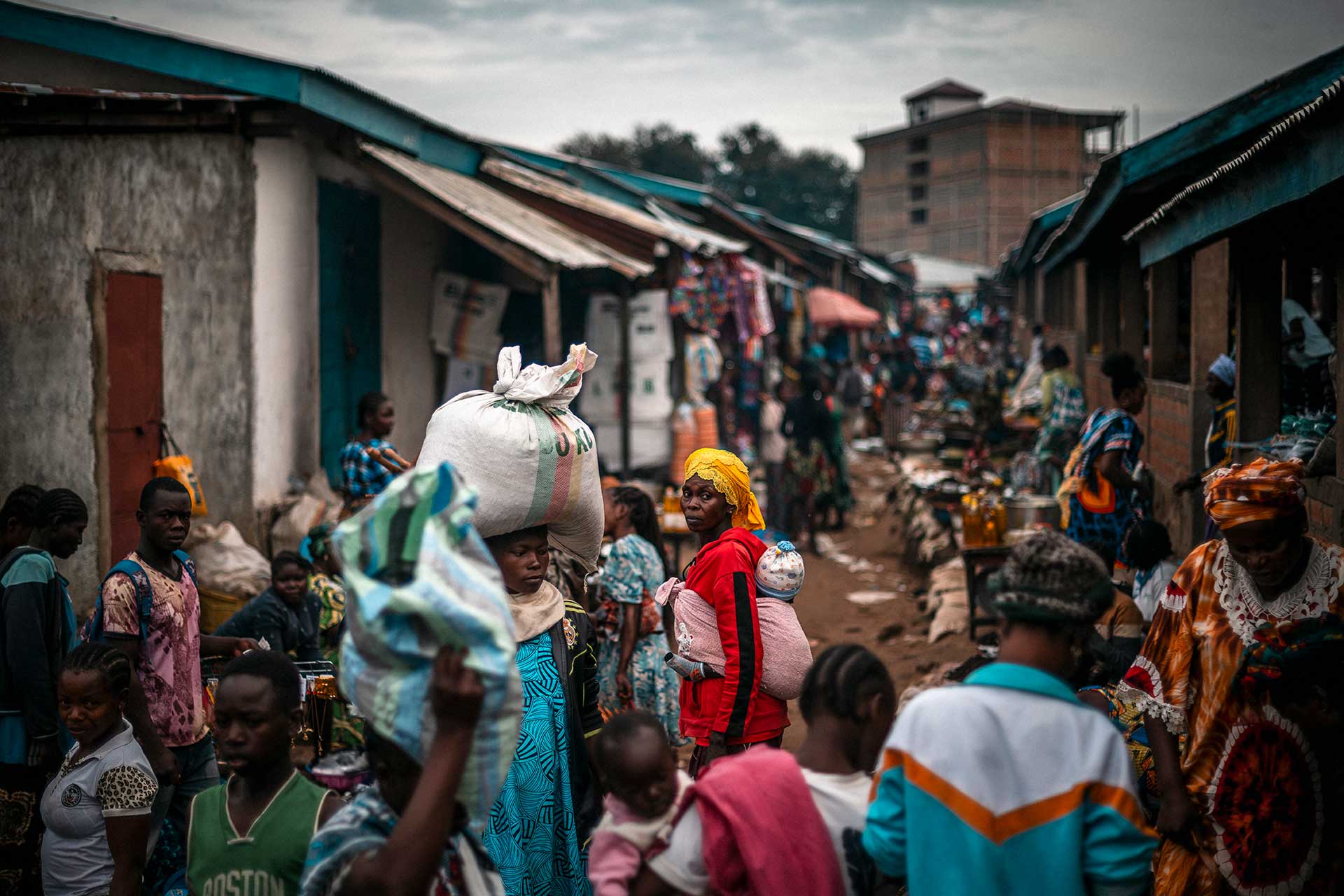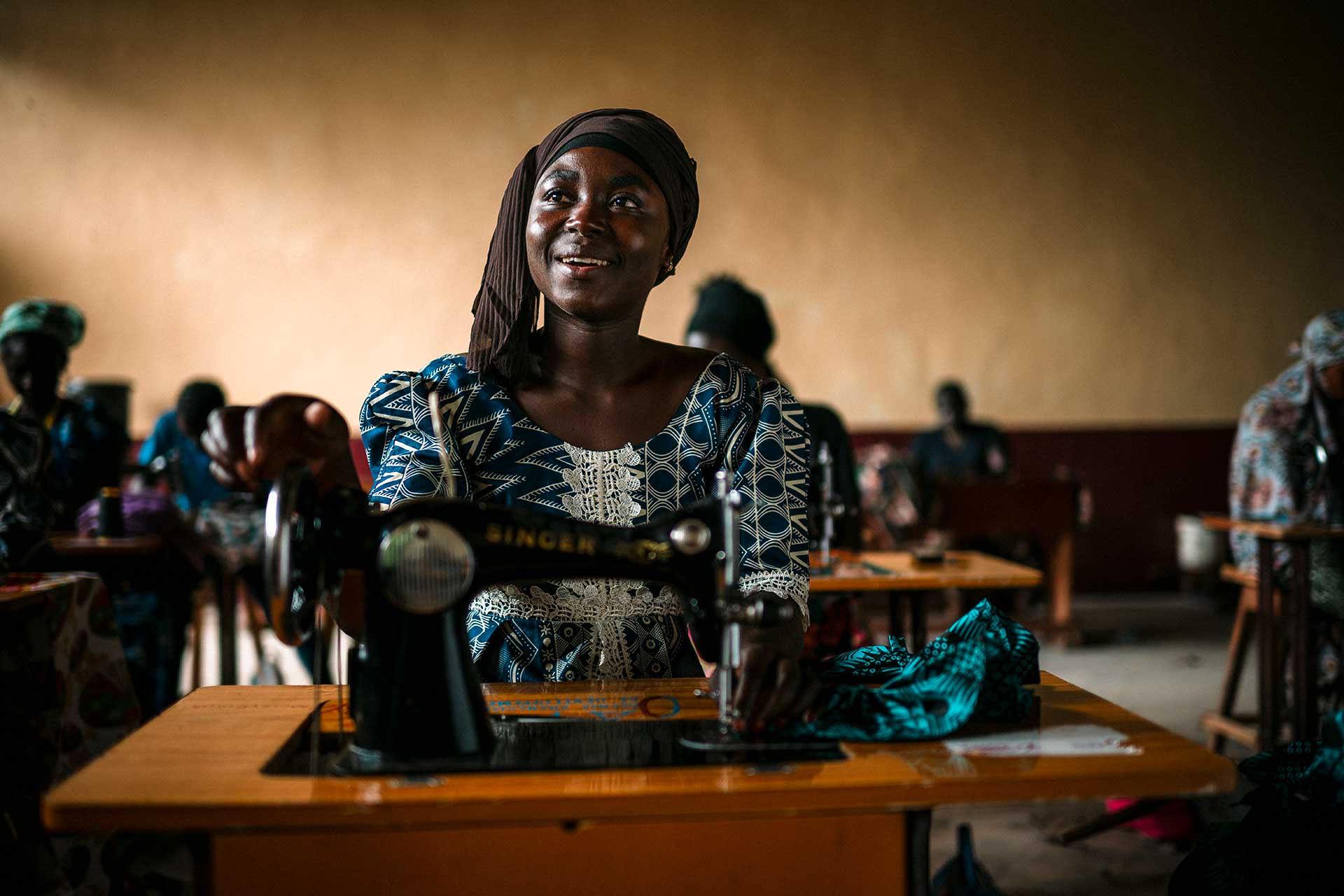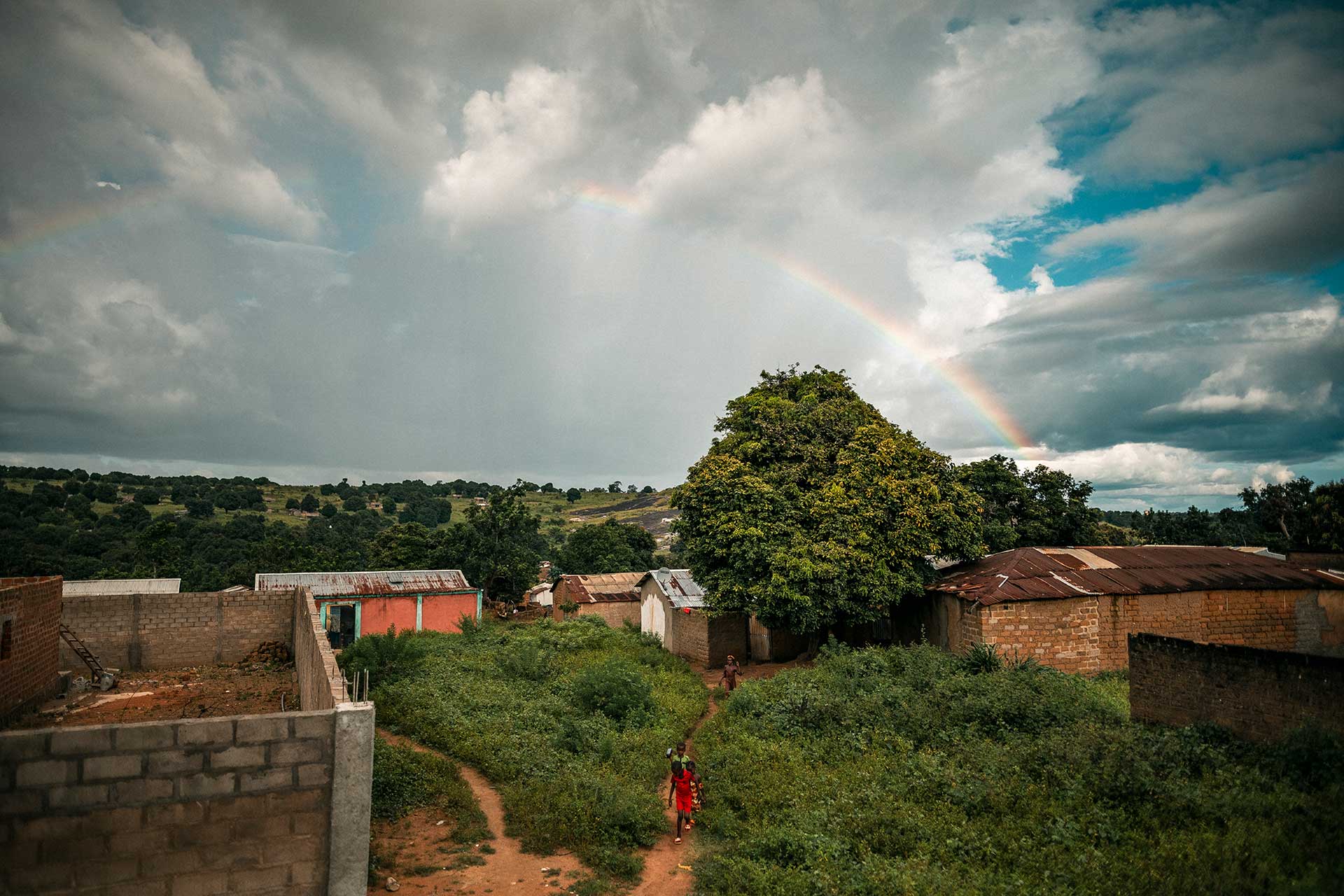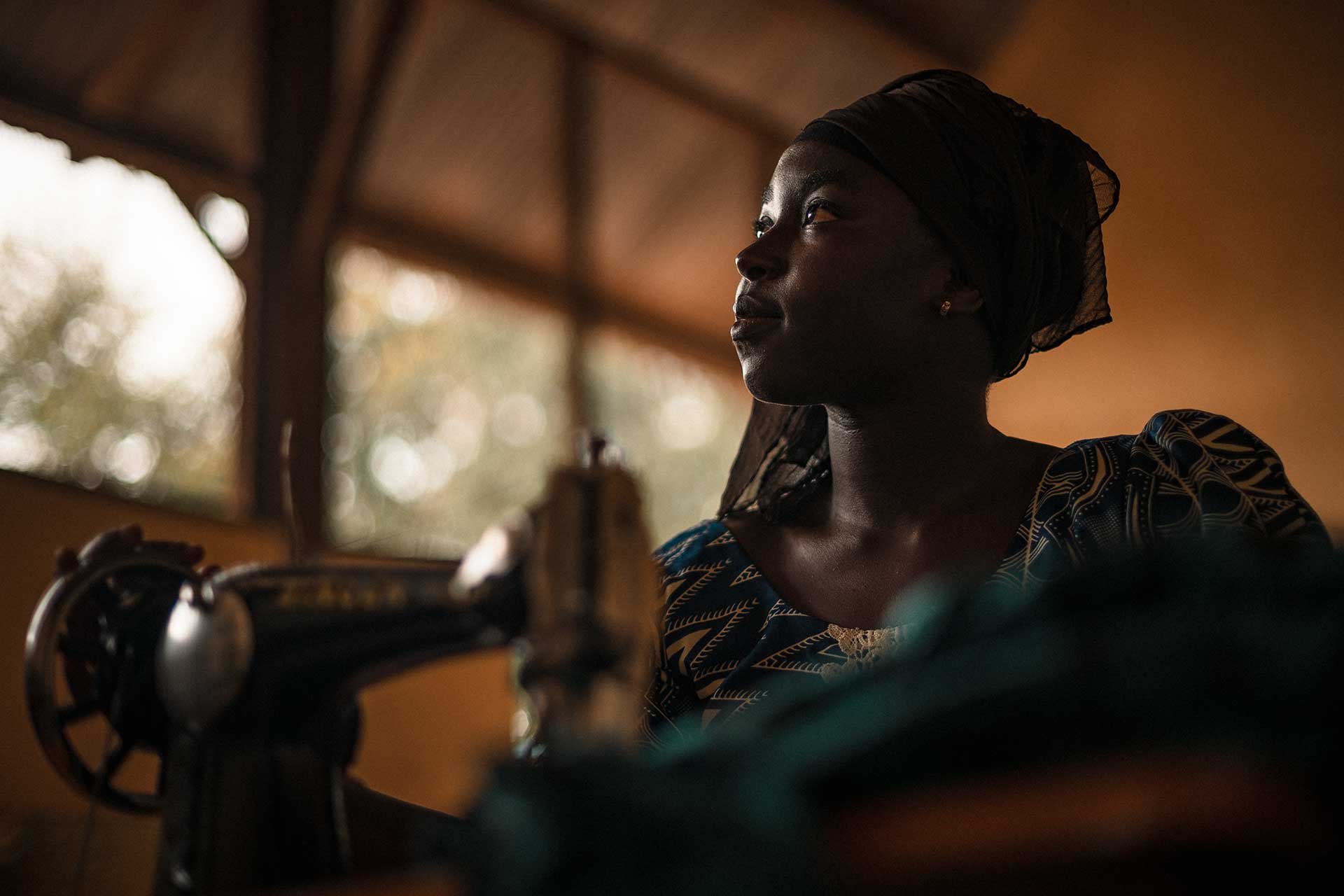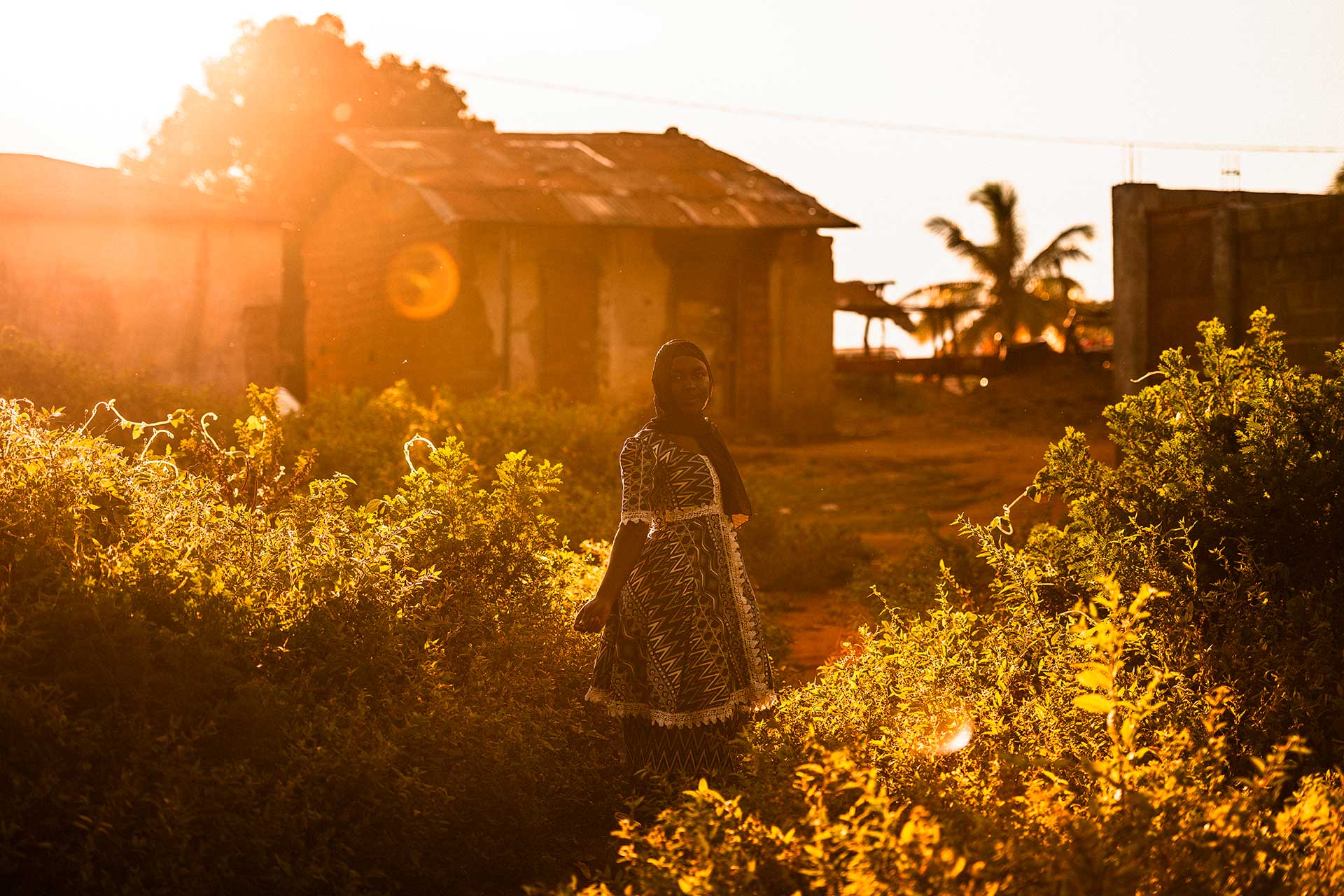Soureya Moussa got a fresh chance to pursue her dreams
When Soureya Moussa became pregnant as a teenager while still in school, she feared her dreams were slipping away. What happened next is not the usual story in the Central African Republic.
Text: Elisa Rimaila
Photos: Antti Yrjönen
A FUEL-POWERED GENERATOR roars into life in a neighbour’s yard. The roar drowns out all other sounds, but Soureya Moussa, 20, doesn’t seem bothered by the sudden change in soundscape. She continues to stir white fufu, a porridge made from cassava flour, over a pot set over an open fire.
Soureya shares her home, a small, one-room house, with four other people. The home is located in the western part of the Central African Republic, in the predominantly Muslim neighbourhoods of the city of Bouar. Soureya is also a member of the Muslim minority in her country, and prayer is an integral part of her mornings and evenings. Soureya does not go to the mosque near her home. Perhaps there is no time for that, as the young woman’s days are filled with various responsibilities, such as going to school, learning to sew, and taking care of her own child.
Soureya tenderly combs the hair of her now 3-year-old daughter. She has not seen her family since she found out she was pregnant.
“I really loved my father, and he loved me. Maybe that’s why he kicked me out of the house,” the young woman says.
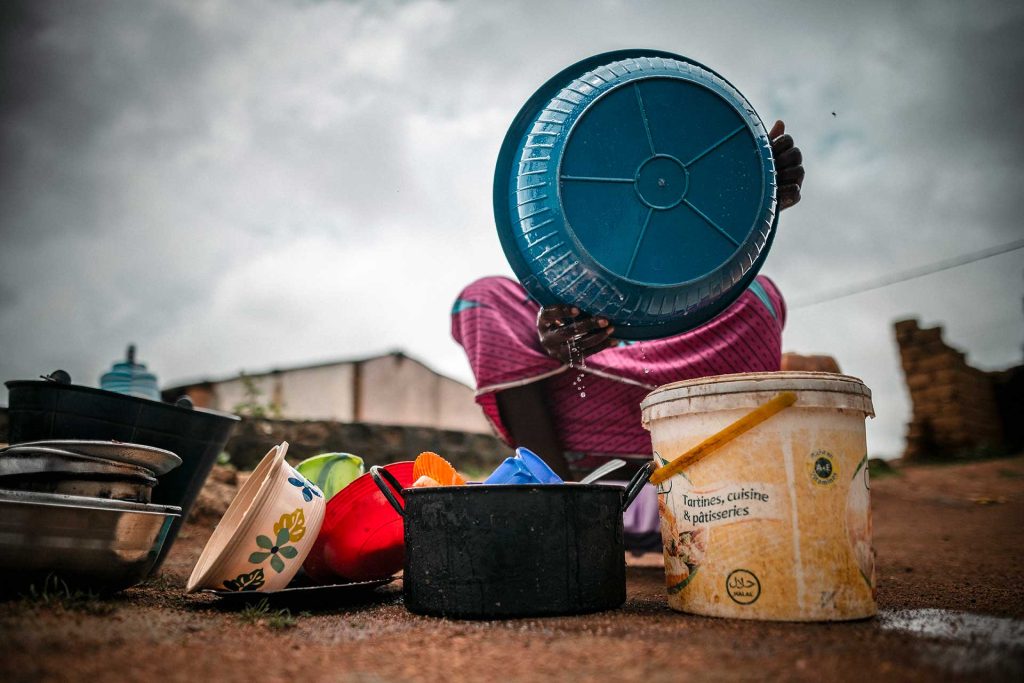
Hassania Halim arrives home. Soureya calls her her big sister. It was Hassania who came to Soureya’s aid when the situation seemed hopeless. The woman opened her home to the girl who was abandoned by her family.
“I took her in like my own sister. I’m really touched that she calls me big sister. Soureya is a calm and decent girl, and she hasn’t been a problem at all,” Hassania says.
Soureya’s story is common in the Central African Republic. Most girls who attend school drop out before the fourth grade. Only a small percentage of those who complete the first six grades of primary school continue on to secondary school and graduate from grades equivalent to upper secondary school.
Teenage pregnancy interrupts the education of too many girls
A common reason for dropping out of school is poverty, which forces children from families to work in the same fields as their parents. In addition, a large number of teenage girls become mothers for the first time at a very young age. According to the UN children’s agency Unicef, one in four girls in the Central African Republic is married before the age of 15. In addition to marriage, there are of course a huge number of girls who experience the same fate as Soureya: they become pregnant without the father of the child taking responsibility for what happened. The lives of these girls can suddenly become very difficult.
“My father got angry with me. He thought my schooling was over. He thought my life was over,” Soureya recalls the events of years ago.
Soureya tells her story in the video below.
Her father’s fear was not unfounded. Without Hassania’s help, Soureya’s schooling would likely have been interrupted completely.
Life was already hard for Soureya and her family, who fled violent conflict at home when Soureya was just a child.
The Central African Republic’s most recent and bloodiest civil war escalated in March 2013. Hundreds of thousands of people fled to neighbouring countries or within their own country in the years following. Soureya’s family ended up in Cameroon, a western neighbour. In addition to Cameroon, Central African refugees continue to live abroad, especially in the Republic of Congo – sometimes called Congo Brazzaville – and the Democratic Republic of Congo.
Poverty a root cause of conflict in Central Africa
Soureya’s current hometown, Bouar, is home to over 40,000 people and is located at an important trade hub. The road from Bangui is only paved for the last 60 kilometres. The slow-moving RN3 highway is jammed with trucks and tankers carrying large logs, food and refined oil; four-wheel drive vehicles from aid agencies; and armored vehicles from UN peacekeepers, the army and Russian mercenaries.
The security situation in this part of the country is fragile. The Central African Civil War has often been simplified into a conflict between different religions. It is true that in Bouar, for example, the Muslim minority was persecuted and the ruins of many homes are still a grim reminder of the past decade in the district where Soureya now lives.
However, the root causes of the conflict are more complex than religion. Extreme poverty robs young people in particular of their prospects. Without education and self-sufficiency, it is difficult to build a future.
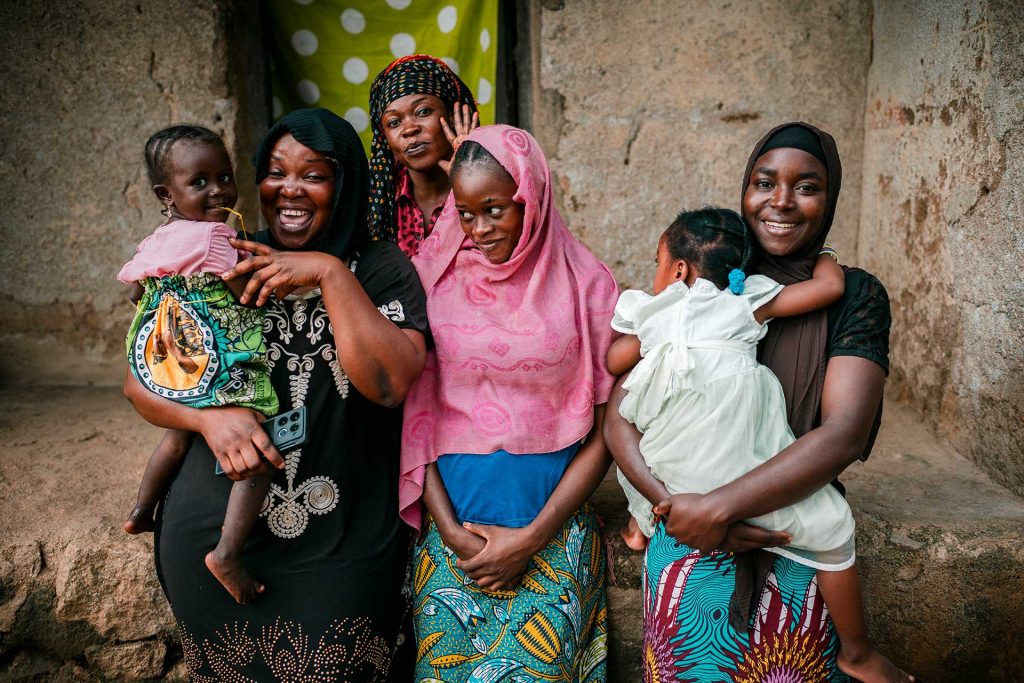
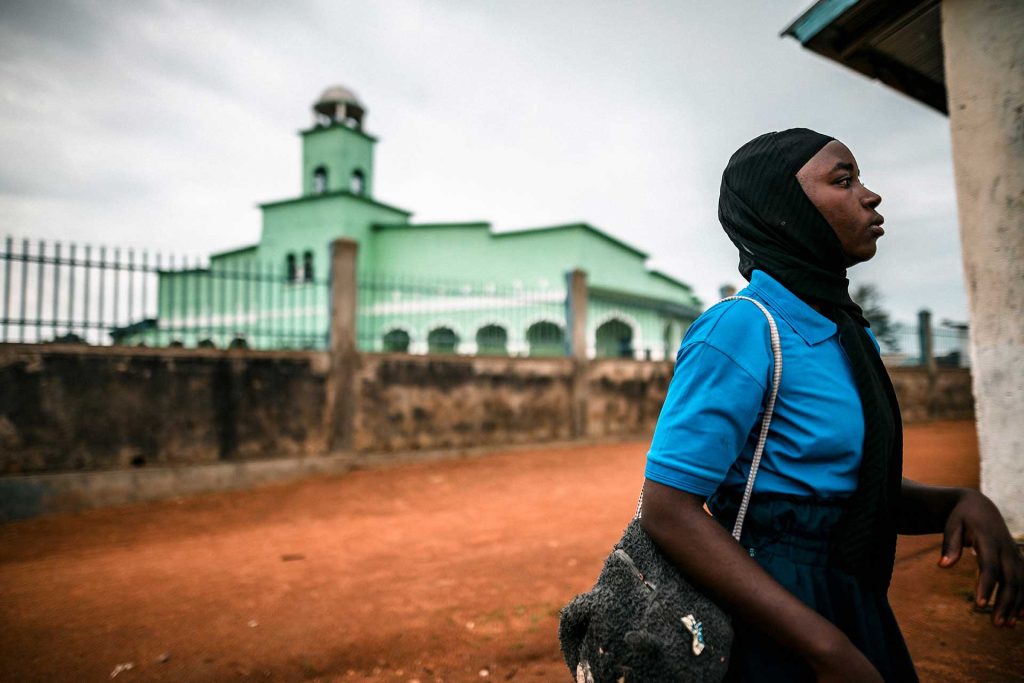
Sewing skills provide bread and education
Soureya stomps the pedal of her sewing machine with determination. The Singer, which operates mechanically without electricity, hisses and the colorful fabric slides across the table as the needle stabs the edge evenly. The concentrated look on the young woman’s face disappears only momentarily when she glances at her fellow student working next to her.
Twenty young people who dream of becoming seamstresses have been selected for a course organised by Finn Church Aid. Soureya is one of them.
“This course was looking for young people who had some kind of problems in their lives, for example, who were unemployed. I put my name on the list and I was chosen,” she says.
In addition to using a sewing machine, the course taught students how to cut patterns. Illiterate participants also received reading and writing lessons.
“I also want to learn how to design clothes that are recognised as my work. I want the clothes I design to make my country famous,” Soureya says.
Professional skills also have another meaning. Through sewing, Soureya is already able to earn money and support herself and her child. Most importantly, the earnings will enable Soureya to finish her schooling, which she had to leave due to her pregnancy.
“Who knows what the future holds? I am going to acquire this skill now and I hope it will take me forward in life.”
“When you get an opportunity like this, you have to use it,” Soureya reflects.
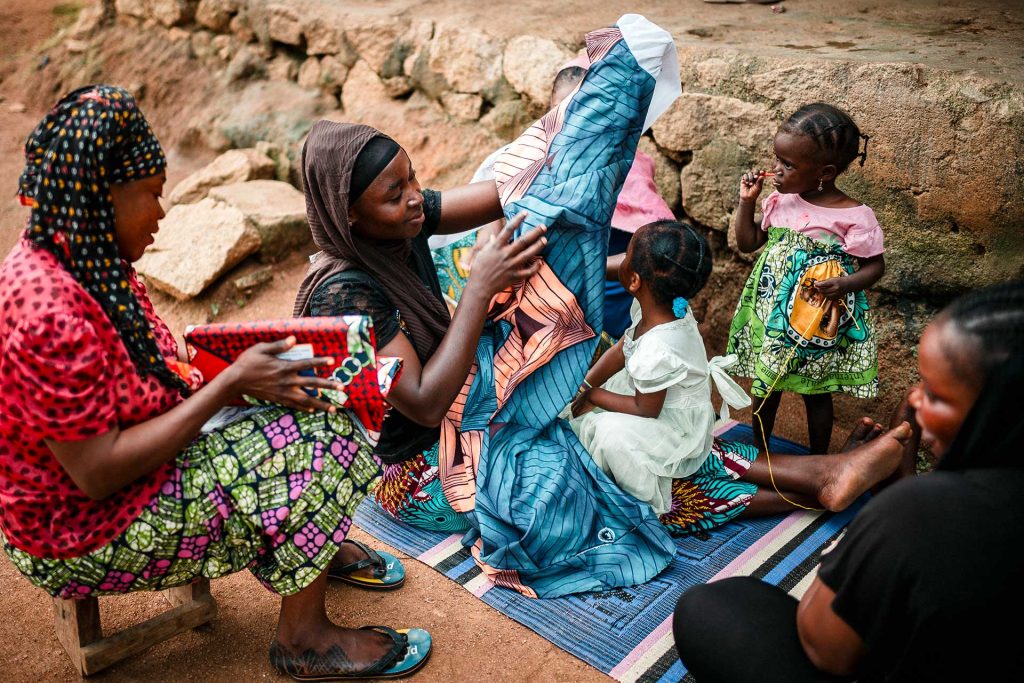
In the Central African Republic, life is fragile
Where could Soureya go in life?
“I would like to work in the health sector,” the young woman says.
“I think that if you save one life, you save the whole world.”
Her dream is understandable. The health system in the Central African Republic is one of the worst in the world. It has even been called an emergency. The average life expectancy in the country is around 53 years, and maternal and child mortality rates are among the highest in the world.
Due to the poor hospital infrastructure and lack of qualified personnel, people in the Central African Republic die from diseases that could be easily treated – and even prevented. Poverty, however, is a factor that prevents people from seeking treatment.
“One of my older brothers fell ill in Cameroon. At the hospital, the doctors first demanded payment from us before they agreed to treat him. He died because we did not raise the money in time.”
Soureya gathers her half-finished work from beside the sewing machine and packs it and the leftover pieces of fabric into a small backpack. The next morning she has to be at school at 7:30. Soureya doesn’t want to be late for the first day of school in the fall semester.
“It’s good to have at least one good friend in life”
The morning air is fresh after the rain. Soureya has put on her blue school uniform. A shirt, a skirt and a matching black headpiece that covers her hair. Hundreds of teenagers and young adults have already gathered in the school yard, waiting for the same thing as Soureya: information about the classroom for today.
First, however, a flag is raised on the flagpole in the school yard. The students gather in a semicircle to listen to the principal’s speech, after which the national anthem of the Central African Republic is sung, La Renaissance in French, the country’s official language, and E Zingo in the local Sango language.
After the song, a confused wandering begins in the school yard. The number of students is enormous compared to the number and size of the classrooms. They have to be there in the morning, but they may not be able to study in their own class until the afternoon.
Soureya and her classmate Larissa Yapele stand among the others.
“We are in the same class. We always sit together and eat together. We have become very close and share everything with each other,” says Larissa.
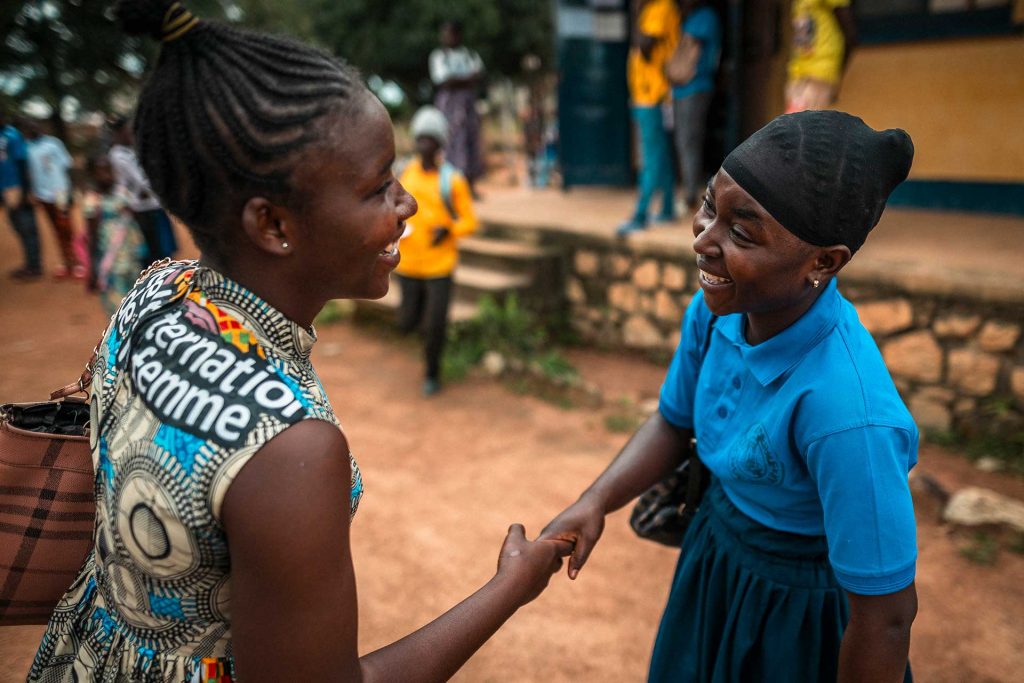
Soureya and Larissa have both experienced great difficulties in their lives. Talking about them brings them together.
“It’s good to have at least one good friend in life. Someone who gives you strength and helps you stay on the right path in life,” Soureya continues.
Having a child does not define your life
After school, Soureya returns home and starts preparing dinner. With the money she earns from her sewing, she has bought new shoes for her daughter at a nearby market.
“When I found out I was pregnant, I was terrified. I thought I would never amount to anything. Having a child has given me a new perspective on life,” Soureya says.
“I now understand that having a child does not define your life. It is up to you what you do and achieve in life.”
Her daughter is playing in the yard wearing her new shoes, and Soureya watches her.
“It is all about heart and determination. I am determined to show my father that I can exceed his expectations. I can exceed society’s expectations. One day, they will no longer remember that I was the one whose life was thought to be over because of a child.”
The article has been written as part of the 2025 Common Responsibility Campaign in Finland. The Common Responsibility Campaign is an annual fundraising campaign of the Finnish Lutheran Church. A share of campaign proceeds are channeled to the Finn Church Aid’s Disaster Fund, which enables the launch and implementation of emergency response to humanitarian disasters.
